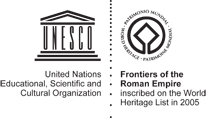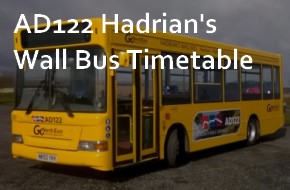Conquered and Conquerors
History tends to be written by those in power – the conquerors rather than the conquered! In north Britain non-literate native populations continued to live their lives in rural areas largely unaffected by Roman culture although they no doubt had to pay taxes, perhaps in the form of goods rather than money. In contrast to the southern part of the Roman province of Britannia, only one native urban centre is known in the north – the civitas of Carlisle where the local tribe (the Carvetii ) were given the right to self government in the 3rd century AD.
These native people, who may have represented 80% or more of the total population, maintained ways of life established centuries before the Roman occupation, during what archaeologists call the Iron Age. Their settlements comprised groups of round houses constructed within an enclosure, surrounded by small cultivated fields with grazing land beyond.
The types of objects the Romans used are found rarely on these sites so they are often difficult to date. At a native settlement located near a Roman road a few miles from the Roman fort at Lancaster evidence from radiocarbon dating and a small amount of Roman style pottery clearly shows the site was occupied at the same time as the fort but there is little trace of Roman influence. Recent landscape research carried out by English Heritage and the Altogether Archaeology project suggests the existence of contemporary native settlements near to the Roman fort at Whitley Castle near Alston in the North Pennines. Whitley Castle lies to the south of Hadrian’s Wall and was almost certainly established to control lead mining.
The Roman Frontier Gallery at Tullie House Museum in Carlisle exlores the impact of the Roman occupation on Britain.


.gif)


 button to add an item to your Itinerary basket.
button to add an item to your Itinerary basket.
